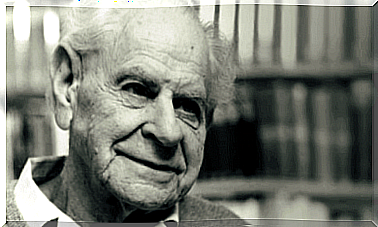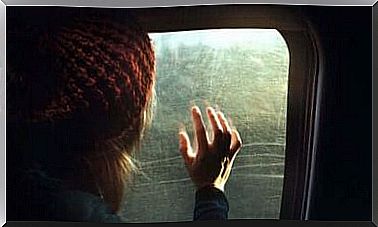The Jungian Therapy In The Treatment Of Anxiety
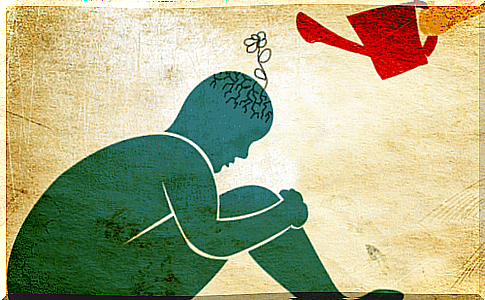
The use of Jungian therapy in the treatment of anxiety is based on a central premise. Our thoughts and perceptions can become our worst enemies, especially if we struggle and do not know how to deal with the anxiety that paralyzes us. However, reaching the root of the problem and accepting them can free ourselves from the problems and what they represent to us.
If there is one word that characterizes Jungian psychology, it is self-knowledge. This is what separated Jung’s premises from Freud’s. He believed that man always has a need to improve himself.
However, everyone suffers from anxiety. The reason for this seemed clear to Jung. For him, the world is not always a safe place.
Our social environment, our institutions, authorities and even the modernity that surrounds us is not something that makes us feel so hopeless. The feeling of being disappointed, of not being free and of not being able to be perfect as a human being is combined with a feeling of constant insecurity. The external pressure splits us inside and instead of dealing with that internal tension, we struggle in a stoic way.
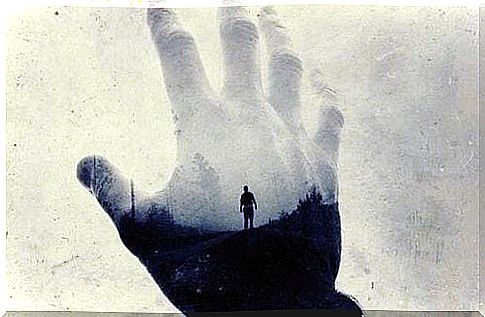
Jungian therapy is a specialized form of psychotherapy whose method differs from that used in cognitive or humanistic psychotherapy. In fact, universities like the University of California have been training students in this method for over 40 years.
This psychotherapy contains some interesting cornerstones that are worth considering when treating anxiety.
In order to strengthen an idea, Jungian therapy addresses concepts such as archetypes and the collective unconscious. People share a psychic substrate that is the origin of the common elements that characterize us all. This means that there are instincts, shadows and driving forces that we all share (according to this theory).
- Anxiety is like a rug we walk on every day. It is a feeling filled with suffering, which arises from what we have previously addressed: the feeling of living in an environment that is not always safe.
- Even when all people have this common dimension, there is a fact that defines this approach, which Jung clarified with the help of analytical psychology: we are obliged to individualize ourselves, and break out of the structure we all share, and become self-propelled and independent.
- The people who live with anxiety every day must be able to clarify what they feel, what they experience and, most importantly, what they need.
Jungian therapy uses a closed methodology, a dialectical approach in which the therapist must be able to relate to the patient’s personality in order to promote both a sense of comfort and autonomy, as well as being an active agent in the recovery process.
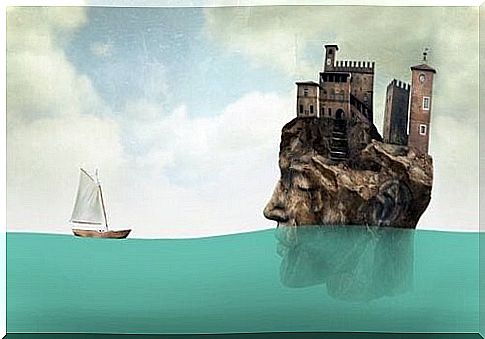
Another of the cornerstones of this therapy in the treatment of anxiety is finding the original cause; the very root of the problem that gives rise to the mental suffering. This means letting the darkest part of a personality come to the surface. It is also fundamental that the therapist identifies the person’s needs, fixations, etc.
To achieve this, the methodology is based on the following strategies:
- Conversation therapy
- Interpretation of dreams
- Association of ideas
- Creative techniques
It is important for recovery to analyze the unconscious, which is often full of problems, emptiness and denied needs. With that said, an alliance must be established between the therapist and the patient in order to be able to handle and work with this complex mental structure in the best possible way.
Jungian therapy has only one purpose in the treatment of anxiety: individualization. In order to promote that mental and emotional autonomy, it is necessary to be able to break the resistance and stop that desire to escape from moments of anxiety and what frightens us.
Carl Jung believes that the harder you work to escape from the negative thoughts, the more power they will have over us.
- Denying and struggling with something will therefore aggravate the symptoms associated with anxiety. This will then cause more nervousness, more restlessness and more irritation.
- Jungian therapy will try to guide us so that we can accept a very important aspect: to understand that that anxiety is part of being human. This means that we must accept it without resisting. On the other hand, it does not mean that we should let it control us, because this would have caused us to lose our autonomy.
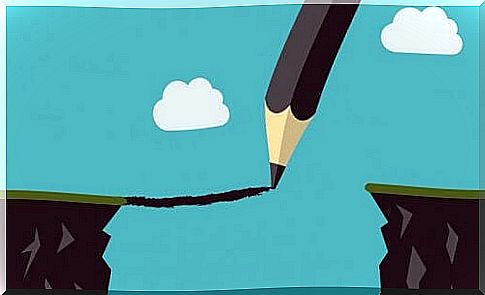
Jungian therapy is aware of the fact that we sometimes use all our energy in the treatment of anxiety. The chronic despair and lack of motivation that many suffer from almost always has the same beginning: a lack of purpose and that one finds no meaning in life.
This type of therapy provides appropriate tools to help the person regain focus in life. The person will thus be able to construct his purpose based on his own needs. This is a great way to relieve anxiety and redirect it to new personal goals.
We can always use Jungian therapy if we want to treat our anxiety. It restores our emotional balance from our subconscious, our blockages, our fears and our shadow.
It is important to keep in mind that there are many studies nowadays that confirm and support the effectiveness of Jungian therapy. It is always positive to start a psychotherapeutic journey that promotes self-awareness and personal freedom.






